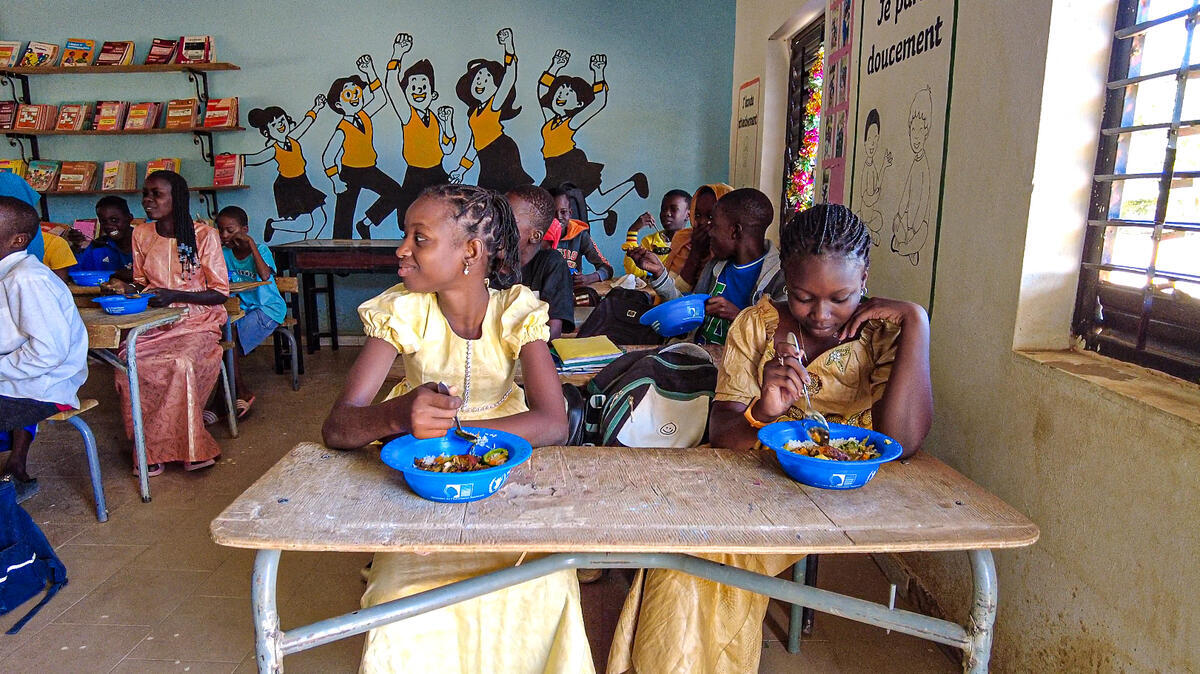
During July, the WFP Centre of Excellence against Hunger in Brazil worked on the participatory development of the action plan for the new National School Feeding Policy based on Local Production (PNAS) in Senegal. The country is moving forward with the consolidation of a national school feeding strategy to ensure that, by 2030, half of the students in its public and community schools receive a daily, healthy meal based on local products.
The initiative is led by Senegal’s School Canteens Division (DCaS), with technical support from the WFP in the country, the French government and, on the Brazilian side, the WFP Centre of Excellence against Hunger, the National Fund for Education Development (FNDE) and the Brazilian Cooperation Agency (ABC).
Among the activities carried out so far are the review of documents prepared by the country, the production of institutional support materials and ongoing dialogue between the education, agriculture, health and social protection sectors.
The aim of this partnership is to strengthen the country’s institutional frameworks and ensure their effectiveness in consolidating a programme that connects school feeding, family farming purchases, food and nutrition education, and territorial development.
The initiative is inspired by Brazilian best practices, such as the National School Feeding Programme (PNAE) and the Food Acquisition Programme (PAA).
The policy being developed focuses on a territorialized approach, with local public procurement, participatory governance mechanisms and a three-phase transition: pilot, expansion and consolidation.
This integrated and multisectoral approach can be leveraged in Senegal, which is beginning to show progress in terms of access to nutritious food. According to the State of Food Security and Nutrition (SOFI) 2025 report, the proportion of the population in Senegal that cannot afford a healthy diet has fallen from 51.3% to 48.6%. This progress can be further enhanced by the school feeding programme, which stimulates local production and strengthens short supply chains through the PNAS.




